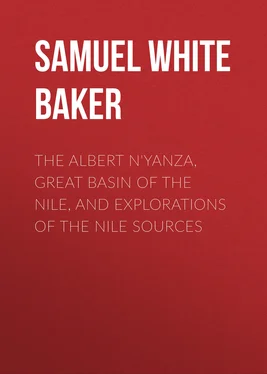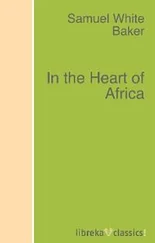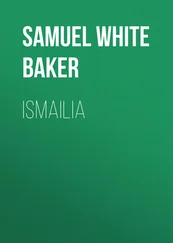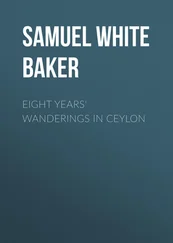Samuel White Baker - The Albert N'Yanza, Great Basin of the Nile, And Explorations of the Nile Sources
Здесь есть возможность читать онлайн «Samuel White Baker - The Albert N'Yanza, Great Basin of the Nile, And Explorations of the Nile Sources» — ознакомительный отрывок электронной книги совершенно бесплатно, а после прочтения отрывка купить полную версию. В некоторых случаях можно слушать аудио, скачать через торрент в формате fb2 и присутствует краткое содержание. Издательство: Иностранный паблик, Жанр: Путешествия и география, История, foreign_edu, foreign_antique, foreign_prose, на английском языке. Описание произведения, (предисловие) а так же отзывы посетителей доступны на портале библиотеки ЛибКат.
- Название:The Albert N'Yanza, Great Basin of the Nile, And Explorations of the Nile Sources
- Автор:
- Издательство:Иностранный паблик
- Жанр:
- Год:неизвестен
- ISBN:нет данных
- Рейтинг книги:4 / 5. Голосов: 1
-
Избранное:Добавить в избранное
- Отзывы:
-
Ваша оценка:
- 80
- 1
- 2
- 3
- 4
- 5
The Albert N'Yanza, Great Basin of the Nile, And Explorations of the Nile Sources: краткое содержание, описание и аннотация
Предлагаем к чтению аннотацию, описание, краткое содержание или предисловие (зависит от того, что написал сам автор книги «The Albert N'Yanza, Great Basin of the Nile, And Explorations of the Nile Sources»). Если вы не нашли необходимую информацию о книге — напишите в комментариях, мы постараемся отыскать её.
The Albert N'Yanza, Great Basin of the Nile, And Explorations of the Nile Sources — читать онлайн ознакомительный отрывок
Ниже представлен текст книги, разбитый по страницам. Система сохранения места последней прочитанной страницы, позволяет с удобством читать онлайн бесплатно книгу «The Albert N'Yanza, Great Basin of the Nile, And Explorations of the Nile Sources», без необходимости каждый раз заново искать на чём Вы остановились. Поставьте закладку, и сможете в любой момент перейти на страницу, на которой закончили чтение.
Интервал:
Закладка:
The Atbara, although so important a river in the rainy season of Abyssinia, is perfectly dry for several months during the year, and at the time I first saw it, June 13, 1861, it was a mere sheet of glaring sand; in fact a portion of the desert through which it flowed. For upwards of one hundred and fifty miles from its junction with the Nile, it is perfectly dry from the beginning of March to June. At intervals of a few miles there are pools or ponds of water left in the deep holes below the general average of the river's bed. In these pools, some of which may be a mile in length, are congregated all the inhabitants of the river, who as the stream disappears are forced to close quarters in these narrow asylums; thus, crocodiles, hippopotami, fish, and large turtle are crowded in extraordinary numbers, until the commencement of the rains in Abyssinia once more sets them at liberty by sending down a fresh volume to the river. The rainy season commences in Abyssinia in the middle of May, but the country being parched by the summer heat, the first rains are absorbed by the soil, and the torrents do not fill until the middle of June.
From June to the middle of September the storms are terrific; every ravine becomes a raging torrent; trees are rooted up by the mountain streams swollen above their banks, and the Atbara becomes a vast river, bringing down with an overwhelming current the total drainage of four large rivers—the Settite, Royan, Salaam, and Angrab—in addition to its own original volume. Its waters are dense with soil washed from most fertile lands far from its point of junction with the Nile; masses of bamboo and driftwood, together with large trees, and frequently the dead bodies of elephants and buffaloes, are hurled along its muddy waters in wild confusion, bringing a rich harvest to the Arabs on its banks, who are ever on the look-out for the river's treasures of fuel and timber.
The Blue Nile and the Atbara receiving the entire drainage of Abyssinia, at the same time pour their floods into the main Nile in the middle of June. At that season the White Nile is at a considerable level, although not at its HIGHEST; and the sudden rush of water descending from Abyssinia into the main channel, already at a fair level from the White Nile, causes the annual inundation in Lower Egypt.
During the year that I passed in the northern portion of Abyssinia and its frontiers, the rains continued with great violence for three months, the last shower falling on the 16th September, from which date there was neither dew nor rain until the following May. The great rivers expended, and the mountain torrents dried up; the Atbara disappeared, and once more became a sheet of glaring sand. The rivers Settite, Salaam, and Angrab, although much reduced, are nevertheless perennial streams, flowing into the Atbara from the lofty Abyssinian mountains; but the parched, sandy bed of the latter river absorbs the entire supply, nor does one drop of water reach the Nile from the Atbara during the dry season. The wonderful absorption by the sand of that river is an illustration of the impotence of the Blue Nile to contend unaided with the Nubian deserts, which, were it not for the steady volume of the White Nile, would drink every drop of water before the river could pass the twenty-fifth degree of latitude.
The principal affluents of the Blue Nile are the Rahad and Dinder, flowing, like all others, from Abyssinia. The Rahad is entirely dry during the dry season, and the Dinder is reduced to a succession of deep pools, divided by sandbanks, the bed of the river being exposed. These pools are the resort of numerous hippopotami and the natural inhabitants of the river.
Having completed the exploration of the various affluents to the Nile from Abyssinia, passing through the Base country and the portion of Abyssinia occupied by Mek Nimmur, I arrived at Khartoum, the capital of the Soudan provinces, on the 11th June, 1862.
Khartoum is situated in lat. 15 degrees 29 minutes, on a point of land forming the angle between the White and Blue Niles at their junction. A more miserable, filthy, and unhealthy spot can hardly be imagined. Far as the eye can reach, upon all sides, is a sandy desert. The town, chiefly composed of huts of unburnt brick, extends over a flat hardly above the level of the river at high water, and is occasionally flooded. Although containing about 30,000 inhabitants, and densely crowded, there are neither drains nor cesspools: the streets are redolent with inconceivable nuisances; should animals die, they remain where they fall, to create pestilence and disgust. There are, nevertheless, a few respectable houses, occupied by the traders of the country, a small proportion of whom are Italians, French, and Germans, the European population numbering about thirty. Greeks, Syrians, Copts, Armenians, Turks, Arabs, and Egyptians, form the motley inhabitants of Khartoum.
There are consuls for France, Austria, and America, and with much pleasure I acknowledge many kind attentions, and assistance received from the two former, M. Thibaut and Herr Hansall.
Khartoum is the seat of government, the Soudan provinces being under the control of a Governor-general, with despotic power. In 1861, there were about six thousand troops quartered in the town; a portion of these were Egyptians; other regiments were composed of blacks from Kordofan, and from the White and Blue Niles, with one regiment of Arnouts, and a battery of artillery. These troops are the curse of the country: as in the case of most Turkish and Egyptian officials, the receipt of pay is most irregular, and accordingly the soldiers are under loose discipline. Foraging and plunder is the business of the Egyptian soldier, and the miserable natives must submit to insult and ill-treatment at the will of the brutes who pillage them ad libitum.
In 1862, Moosa Pasha was the Governor-general of the Soudan. This man was a rather exaggerated specimen of Turkish authorities in general, combining the worst of Oriental failings with the brutality of a wild animal. During his administration the Soudan became utterly ruined; governed by military force, the revenue was unequal to the expenditure, and fresh taxes were levied upon the inhabitants to an extent that paralyzed the entire country. The Turk never improves. There is an Arab proverb that "the grass never grows in the footprint of a Turk," and nothing can be more aptly expressive of the character of the nation than this simple adage. Misgovernment, monopoly, extortion, and oppression, are the certain accompaniments of Turkish administration. At a great distance from all civilization, and separated from Lower Egypt by the Nubian deserts, Khartoum affords a wide field for the development of Egyptian official character. Every official plunders; the Governor-general extorts from all sides; he fills his private pockets by throwing every conceivable obstacle in the way of progress, and embarrasses every commercial movement in order to extort bribes from individuals. Following the general rule of his predecessors, a new governor upon arrival exhibits a spasmodic energy. Attended by cavasses and soldiers, he rides through every street of Khartoum, abusing the underlings for past neglect, ordering the streets to be swept, and the town to be thoroughly cleansed; he visits the marketplace, examines the quality of the bread at the bakers' stalls, and the meat at the butchers'. He tests the accuracy of the weights and scales; fines and imprisons the impostors, and institutes a complete reform, concluding his sanitary and philanthropic arrangements by the imposition of some local taxes.
The town is comparatively sweet; the bread is of fair weight and size, and the new governor, like a new broom, has swept all clean. A few weeks glide away, and the nose again recalls the savory old times when streets were never swept, and filth once more reigns paramount. The town relapses into its former state, again the false weights usurp the place of honest measures, and the only permanent and visible sign of the new administration is the local tax.
Читать дальшеИнтервал:
Закладка:
Похожие книги на «The Albert N'Yanza, Great Basin of the Nile, And Explorations of the Nile Sources»
Представляем Вашему вниманию похожие книги на «The Albert N'Yanza, Great Basin of the Nile, And Explorations of the Nile Sources» списком для выбора. Мы отобрали схожую по названию и смыслу литературу в надежде предоставить читателям больше вариантов отыскать новые, интересные, ещё непрочитанные произведения.
Обсуждение, отзывы о книге «The Albert N'Yanza, Great Basin of the Nile, And Explorations of the Nile Sources» и просто собственные мнения читателей. Оставьте ваши комментарии, напишите, что Вы думаете о произведении, его смысле или главных героях. Укажите что конкретно понравилось, а что нет, и почему Вы так считаете.












